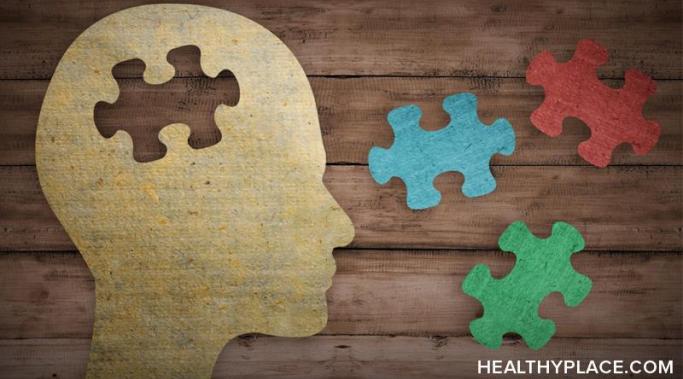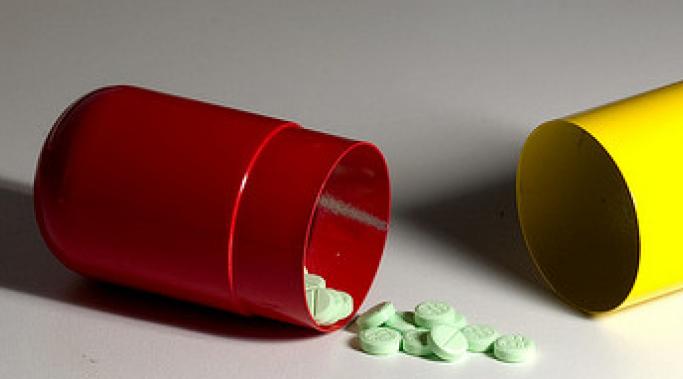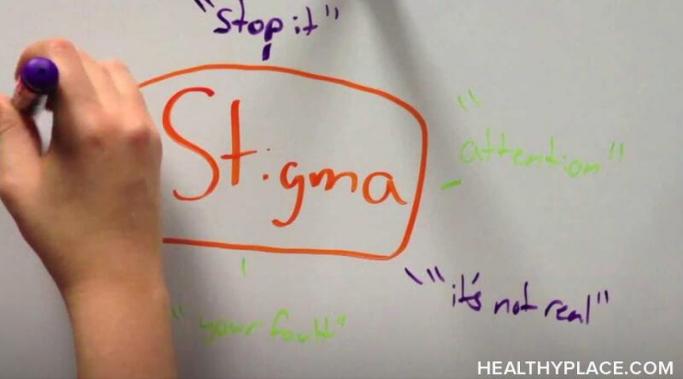Something that I have learned about my anxiety is that it won't go away. It has been something that I have coped with since I was a teenager, possibly even earlier than that, and it is never going to go away. But there are things that I can do to lessen the effects of anxiety.
Coping with Your Diagnosis
If I told you that the two simple words "both . . . and" could help you reduce your anxiety, would you try to use them? It may sound too good to be true, but over the past week, I've been thinking about how valuable these two words can be for producing a meaningful shift in how we think about anxiety.
Fear denied, repressed, suppressed, or put out of mind is not fear extinguished.
Treating anxiety: 'as if'
I've been told that acting 'as if' I'm not nearly as anxious as I am is a helpful thing. It's also dangerous. As with almost any technique sometimes is fine but if you're anything like me and you'll do whatever you have to do to be able to put your anxiety aside and function, and if what you want is to go on with as much of life as you can, uninterrupted by fear, then it can become destabilizing.
Psychiatric treatment is a relationship between you, your mental illness, your drugs, and your doctor(s). That relationship is what matters most when it comes to ensuring medications treat actual mental health issues.
Taking the meds out of clinical practice and studying them in a lab is not only difficult but results in mixed outcomes. The kind we see reflected in the studies which the press pick up on.
Just this week I've read that the drugs don't work, that it's all a big fraud, and that the next Big Pharma pill will cure everything.
Psychiatry, like democracy, is the worst form of treatment except for all the others that have been tried
On a scale of 1-10 how annoying is it when therapists ask questions which sound more like triage than psychotherapy?
One of my commenters took me to task for not talking much (or indeed at all) about the behavioral side of cognitive behavioral therapy (CBT) in a recent post. I shall now regale you with exciting tales of behavioral psychology in order to rectify the situation. Or not, since I expect your definition of exciting extends a touch beyond this topic.
My somewhat love-hate relationship with the B part of CBT aside, the real question is what works.
Mood trackers aren't just for depression or bipolar. They can help you recognize and manage panic, anxiety and stress. Anxiety affects people's moods and many people struggle with depressive symptoms as well as anxiety issues. Crucial to treating anxiety is understanding how symptoms overlap and how that affects you.
One of the things that drives me crazier than usual is this notion that anxiety is in overwhelming proportion amenable to rational thought on the part of the person suffering from the anxiety disorder. It's a persistent idea. It's also wrong.
Cognitive behavioral therapy: What they don't tell you, why you should find out
Feel free to question my emotional competence but I'm not insane. For that matter, most people with mental illness are not insane.
This may be obvious but for many it's not. Anyway, how many times have you thought, 'oh goodness, I must be really losing it this time' during the course of mental health difficulties?
It's a common concern that can dramatically increase the amount of anxiety a person experiences. It may also inhibit their ability to trust, and to ask for help.
Happy is what brings healthy, and viceversa, so it can't be that much of a surprise anxiety and depression have had some pretty rough consequences on my health; High blood pressure at 25, on-and-off flings with anemia, near-constant sleep deprivation.
I may as well have an imp bouncing up and down on my kidneys whilst someone tells my nervous system to pump out all the stress hormones its got, so I can feel normal, or at least prepared. Like a Girl Scout on crack. That's PTSD hypervigilance for you.
It's also that sometimes our bodies express what we are otherwise unwilling, or unable to say.
Life with mental illness isn't always fun. Not just because I have a real illness, and that real illness really does affect my life but because some folks have trouble accepting this. I'm not entirely sure why except they don't like the thought that someone with mental illness can "omg, look just like them," and still be quite unwell.









